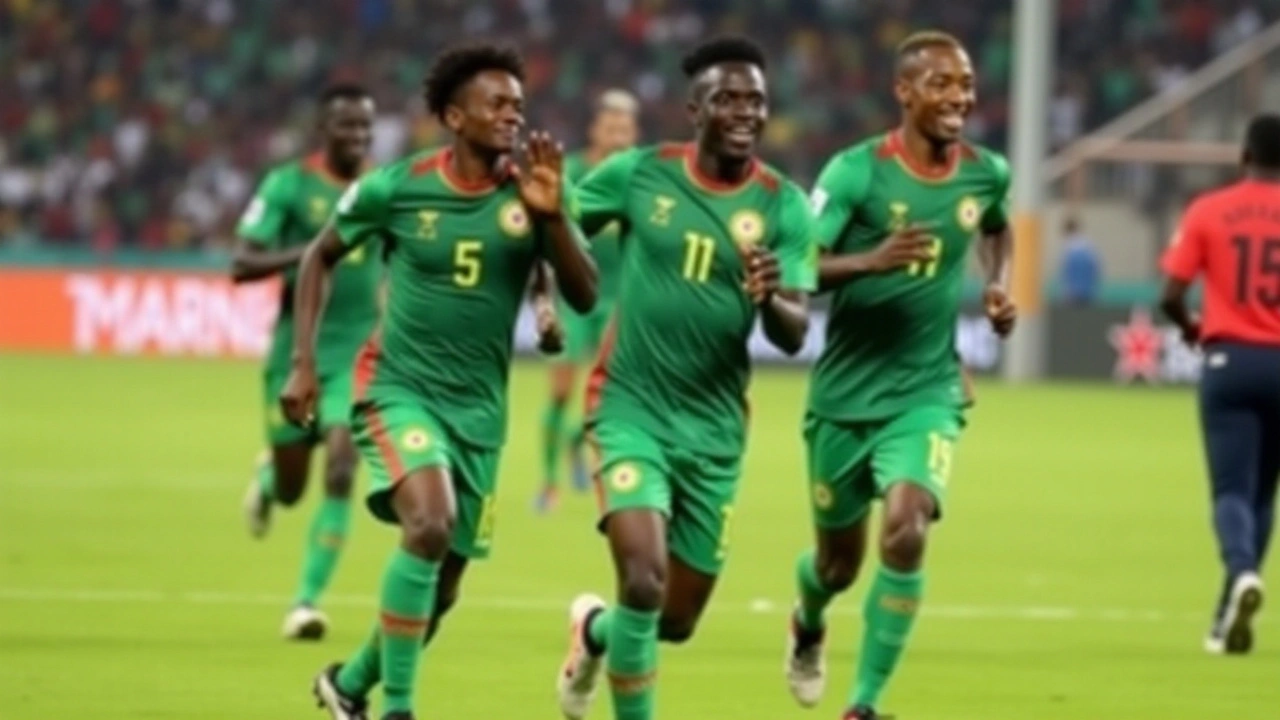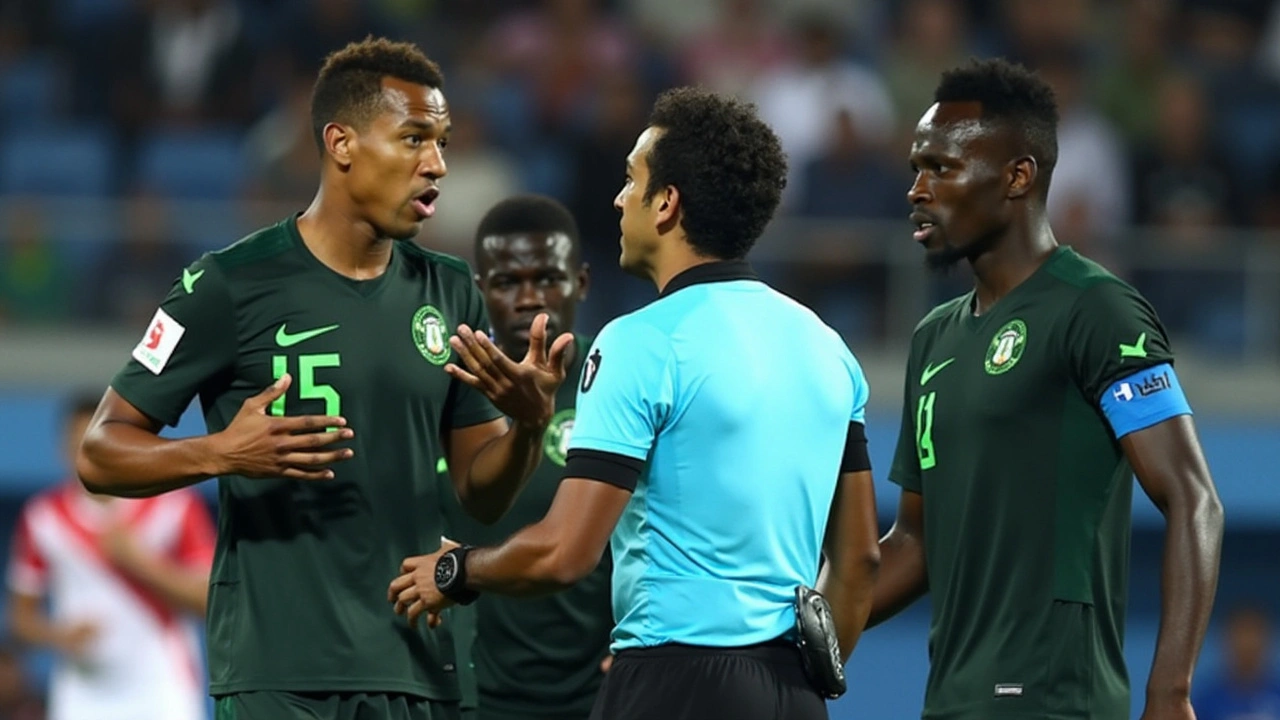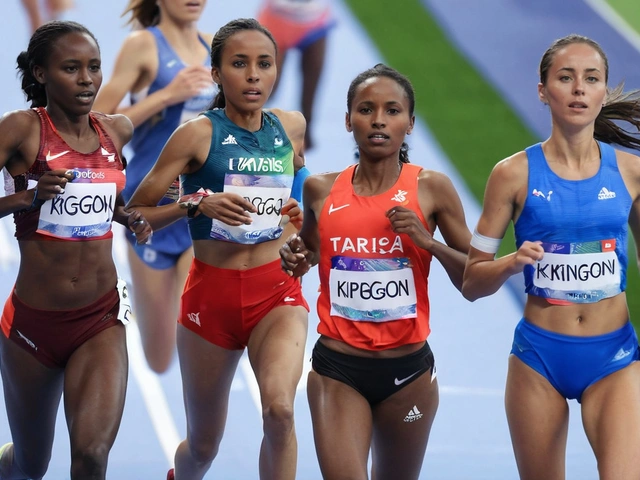Nigerian Super Eagles Boycott Crucial AFCON Qualifier
In an unprecedented turn of events, Nigeria's national football team, the Super Eagles, have taken the drastic step of boycotting their Africa Cup of Nations (AFCON) 2025 qualifier against Libya. This decision stems from an unexpected airport debacle that left the team stranded for over half a day, highlighting a severe logistical lapse and sparking accusations of unsportsmanlike conduct. The dramatic situation unfolded when the team's flight was diverted from their planned destination in Benghazi to Al Abraq Airport, situated some 230 kilometers away. Deprivation at the airport ensued, with Nigerian players left without any food, internet, or adequate resting facilities for over 12 hours.
The Key Players: A Tale of Struggle and Accusations
Nigeria's ordeal has been compounded by the lack of communication or support from the Libyan Football Association. As frustration mounted, the Super Eagles accused their Libyan counterparts of employing 'psychological tactics' to gain an upper hand. Team captain William Troost-Ekong vehemently criticized the treatment they received, labeling it 'disgraceful behavior' and underscoring pressing safety concerns amidst Libya's divided political landscape. Troost-Ekong's call for governmental intervention reveals the depth of concern within the squad, further fueled by the stark logistical challenges posed by traveling through a region characterized by instability and insecurity.
Authorities and Administration: Responses and Responsibilities
The Nigerian Football Federation (NFF) has been in the throes of resolving the debacle, as they sought alternative travel arrangements in vain while being confined to Al Abraq Airport. Without any explanation for the diversion and left to fend for themselves, the NFF's frustrations mirror the players' sentiments. The Confederation of African Football (CAF) has entered the fray, promising a robust investigation into this 'disturbing incident.' The Libyan Football Federation (LFF), for its part, has denied any form of intentional misconduct, attributing the diversion to routine air traffic protocols or unforeseen logistical challenges. This denial contrasts sharply with Nigeria's resolve, creating a diplomatic and sporting quagmire that awaits a decisive resolution.
The Underlying Tension: Historical Grievances and Institutional Dynamics
This logistical quagmire cannot be appreciated in isolation. It echoes previous tensions and incidents of alleged mistreatment between the two nations. Libya had earlier aired grievances about their treatment in Nigeria during the previous encounter in Uyo, a claim the NFF has steadfastly refuted. Such occurrences cast a long shadow over competitive encounters, where logistics and off-field issues can detract from the sporting spirit that should prevail. Institutional dynamics between African football federations often become strained under such discomforts, complicating the pursuit of amicable and just solutions.
The Broader Context: Impact on AFCON and Group Dynamics
The broader implications of this incident could reverberate through the AFCON qualifiers. As it stands, Nigeria tops Group D with seven points, a testament to their sporting prowess on the field. In stark contrast, Libya languishes at the bottom with a solitary point. With the AFCON poised to commence on December 21, 2024, and conclude in early 2026, the timing of such disruptions could influence preparations, team morale, and competitive dynamics within the group. It remains to be seen how CAF will navigate this escalating situation, balancing fairness, institutional integrity, and the need to uphold the spirit of competition.

Concluding Premonitions: Looking Ahead for Resolution and Reconciliation
The Nigerian Super Eagles' decision to boycott the qualifier against Libya signifies a critical juncture in African football—a moment laden with potential consequences for regional cooperation and sporting diplomacy. The unfolding saga calls for measured interventions, with eyes cast on CAF's forthcoming investigation and potential resolutions. As both Nigeria and Libya confront this quandary, the emphasis ought to be on fostering reconciliation, addressing grievances constructively, and ensuring logistical efficiencies that respect the sanctity of competition. Such prerequisites hold the key to embedding a harmonious future for African football, where each competition garners the spirit of unity and fair play.















